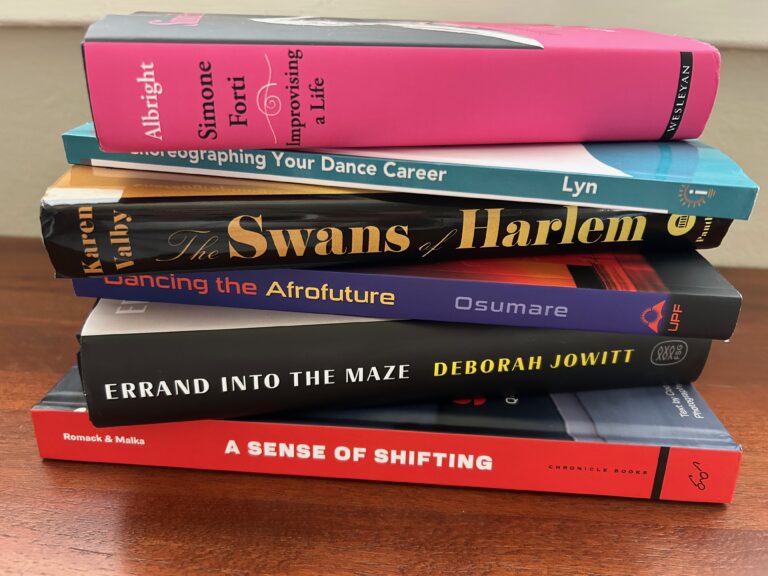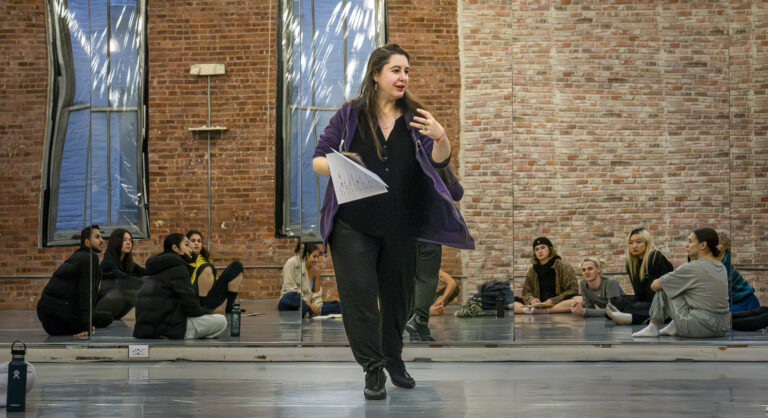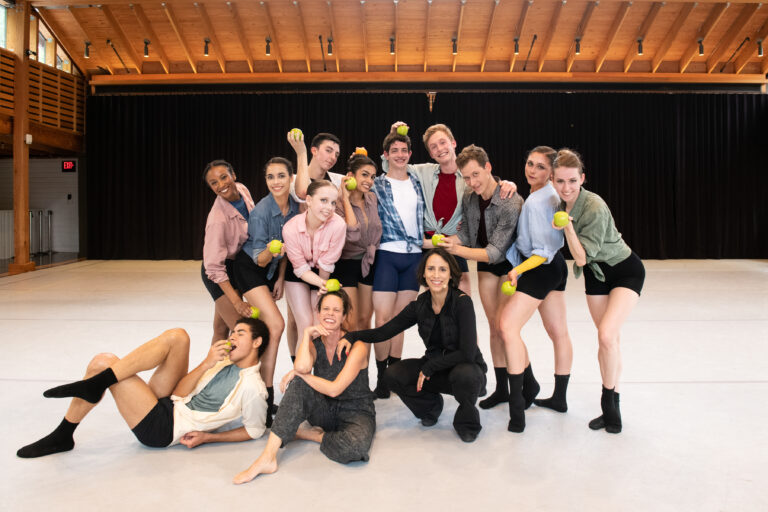
Summer intensive season is upon us, and as some dancers pack their bags for nationally renowned programs, others, who weren’t selected for in-person training, may be facing a renewed feeling of disappointment.
National training programs have always been ultra-selective, but COVID-19 safety guidelines have only made them more competitive. Intensives across the country are operating with smaller capacities, or aren’t offering housing, and top dance students who might have been shoo-ins for acceptance in a normal year have been sidelined. For some, this experience of rejection (or the disappointment of yet another summer at home) may be relatively new and extremely difficult.
“As parents, when our kids are facing unpleasant emotions, we want to rescue them,” says Bailey Nevels, a mom and a licensed psychologist who works with athletes at Clemson University. Yet from a developmental standpoint, Nevels continues, learning how to face hardship can be good for them. Still, they don’t have to do it alone. Here, Nevels shares some tips to help identify how your home-for-the-summer dancer may be feeling and offers some solutions to help support them.
Foster a Growth Mindset
After a rejection, there are three common poles of reactions: teens who can accept disappointment, let it roll off, and set goals for improvement; teens who shut down and want to quit; and, in some cases, teens who overcompensate.
For those dancers who react by shutting down: Nevels mentions the research of renowned psychologist Carol Dweck and recommends her book Mindset: The New Psychology of Success as a great resource for parents.“Dweck’s research is about fixed mindsets—believing one’s abilities are set—and growth mindsets, believing setbacks are opportunities for growth,” Nevels says. “Someone with a fixed mindset gives up whenever they face rejection.” Cues for this reaction may be that they seem less motivated for training: For example, it might take longer for them to get ready to go to class, or they might ask to skip rehearsal. “Any change in routine—or wanting to skip the routine altogether—may be a red flag,” says Nevels. “They also might not be as motivated to spend time with friends, or they might not be as talkative as usual.”
To help foster a growth mindset, Nevels suggests starting with some general counseling skills. “Encourage open-ended conversations and questions. Start with ‘How are you feeling about this?’” Don’t try to solve problems in an initial conversation—just stick to acknowledging feelings. “Their sadness matters—it hurts and it’s painful,” says Nevels. “Accept their feelings without judgment.”
Plan Next Steps
A second conversation is when some problem-solving can begin. Again, keep your questions open-ended. Try “What do you think you need?” Ask if they can pinpoint some areas of improvement and start there. Maybe a summer at home includes extra cross-training and a few one-on-one sessions with a fitness trainer. Or maybe they want to try an open class at a new studio or add in some virtual classes offered through CLI Studios or Broadway Dance Center. Bottom line, though, says Nevels: “It needs to be a collaborative process. It may be hard as a parent to step back—because we sometimes do know best about what they need. But we can’t always swoop in and do things for them.”
Bring in an Expert
When it comes to students who are overcompensating for the rejection, they might ask to go to the gym more often than usual or set grueling training schedules. In this scenario, after you’ve had a discussion with your dancer about their feelings, Nevels suggests consulting with their teacher. “Teens may often make assumptions without having the facts to back these opinions up,” she says. Internal insecurities—like weight or fitness level—can nag at your dancer, even though they weren’t the real reasons behind the nonacceptance to the program. Instead, it could be beneficial for a teacher to help identify true areas of improvement. Schedule a meeting with a trusted teacher and let your dancer and the teacher set some goals or intentions for the summer.
Propose a Break
In both cases—dancers who want to quit or dancers who are overcompensating—you might also offer them space to take a break. This can be tricky, especially when dancers may feel like they’ve fallen behind after a year-plus of virtual dance classes. But, Nevels continues: “Let them know that taking a couple weeks off isn’t something that they have to do, but that they have your permission to do so,” she says. Often, it’s just helpful for them to know you’d be OK with them taking some time—if that’s what they want. It may relieve some of the intense pressure they’re feeling. “Many athletes are afraid to ask for time off,” says Nevels. “Put out all the options and let them feel what’s right.”




